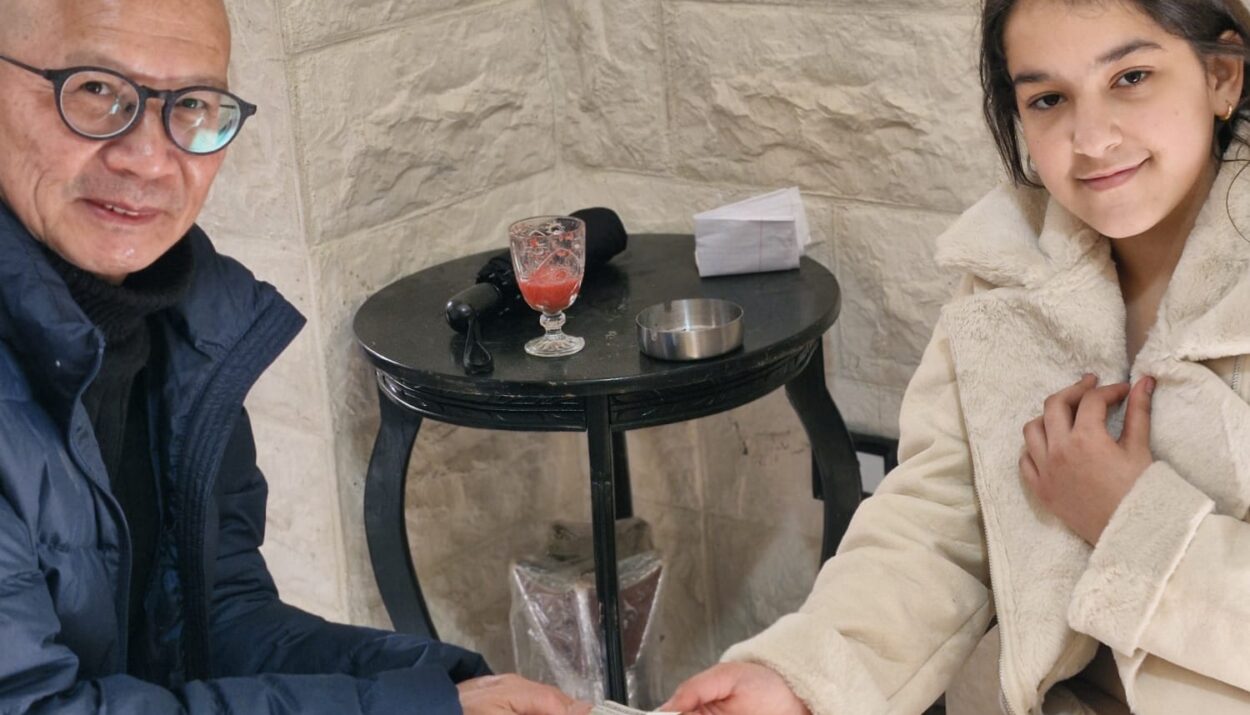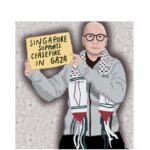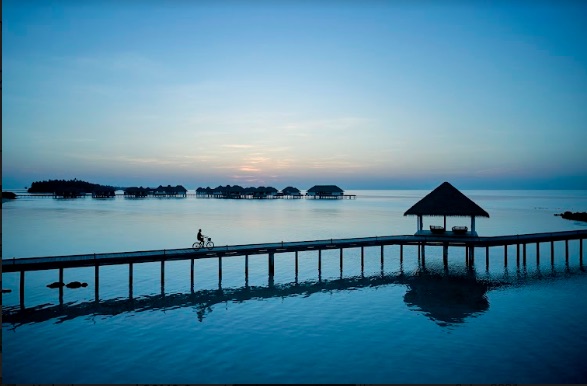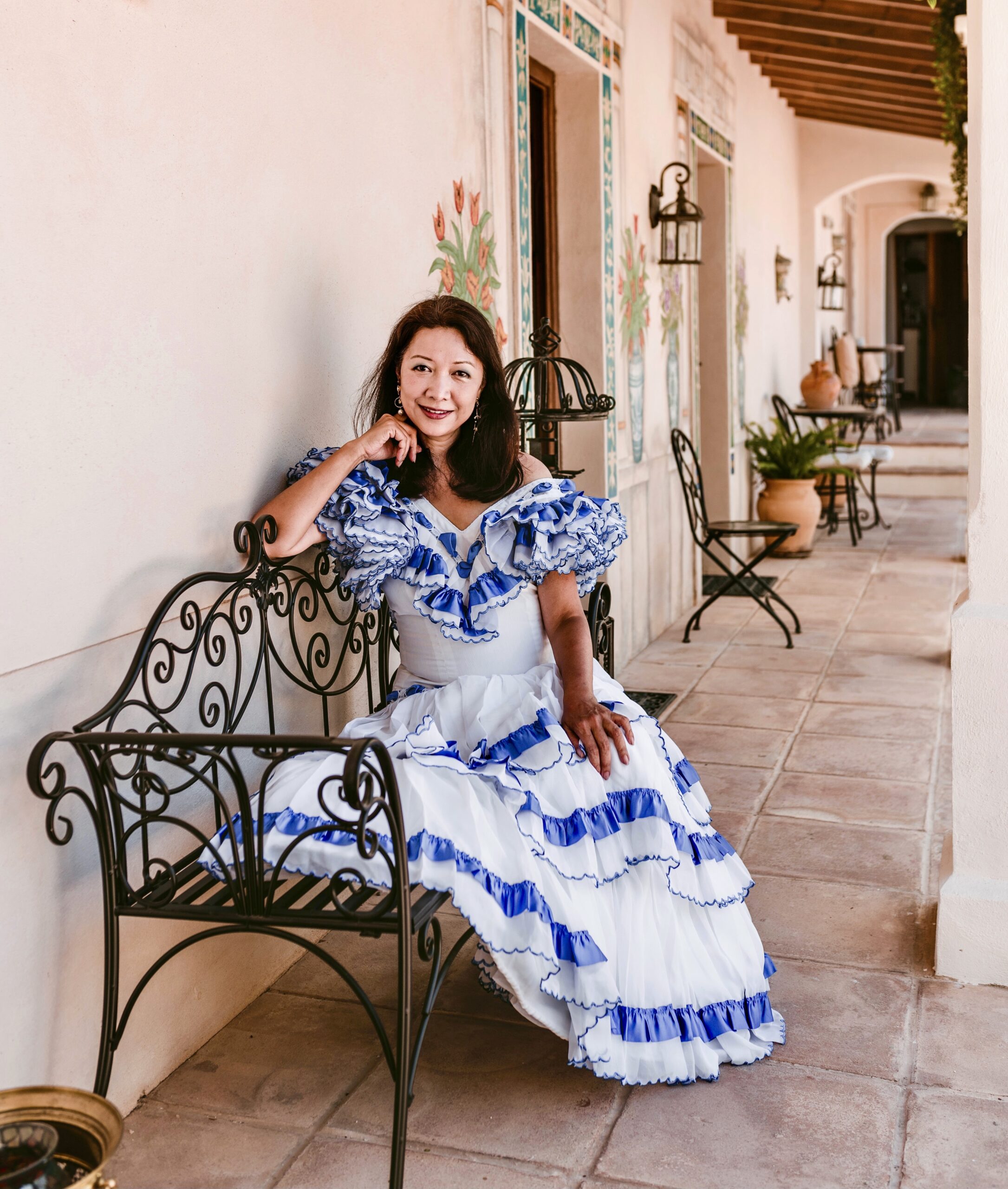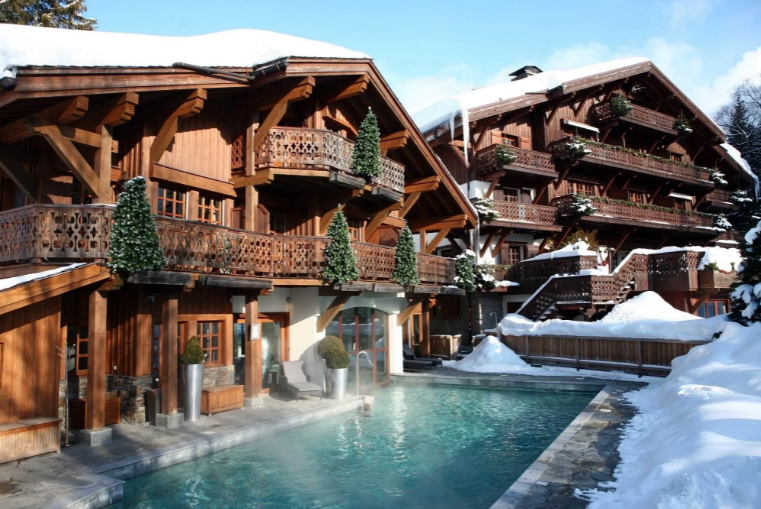Love Aid Singapore
By : Zu Anjalika Kamis Gunnulfsen | Pictures : Gilbert Goh
This is Part II of an interview with Gilbert Goh. Click here to read Part I.
Gilbert, you run food kitchens in some locations in Palestine. Tragically, in early March 2024, one of the food kitchens was bombed, killing 9 Palestinians who were cooking at that point. Please walk us through the emotions and thought processes following that dreadful news.
Yes, for sure it’s the darkest period of my entire humanitarian work as so far no one has died on my watch while carrying out relief work over the past 7 to 8 years. It’s both unprecedented and shocking, to say the least.
I went to a very dark place when I heard about the news from the NGO and just slept in lying on my bed – unable to do much for the whole day. I realised it was grief that was taking over my body and soul.
I also thought that it was preventable as just a few days before the tragic incident, the Rafah kitchen was also bombed but without any fatality – just that the utensils and pots were all damaged.
We should be more cautious afterwards, but we all learn from our mistakes and move on.
Most of our kitchens now are mobile and none is static to avoid being targeted for possible bombing.
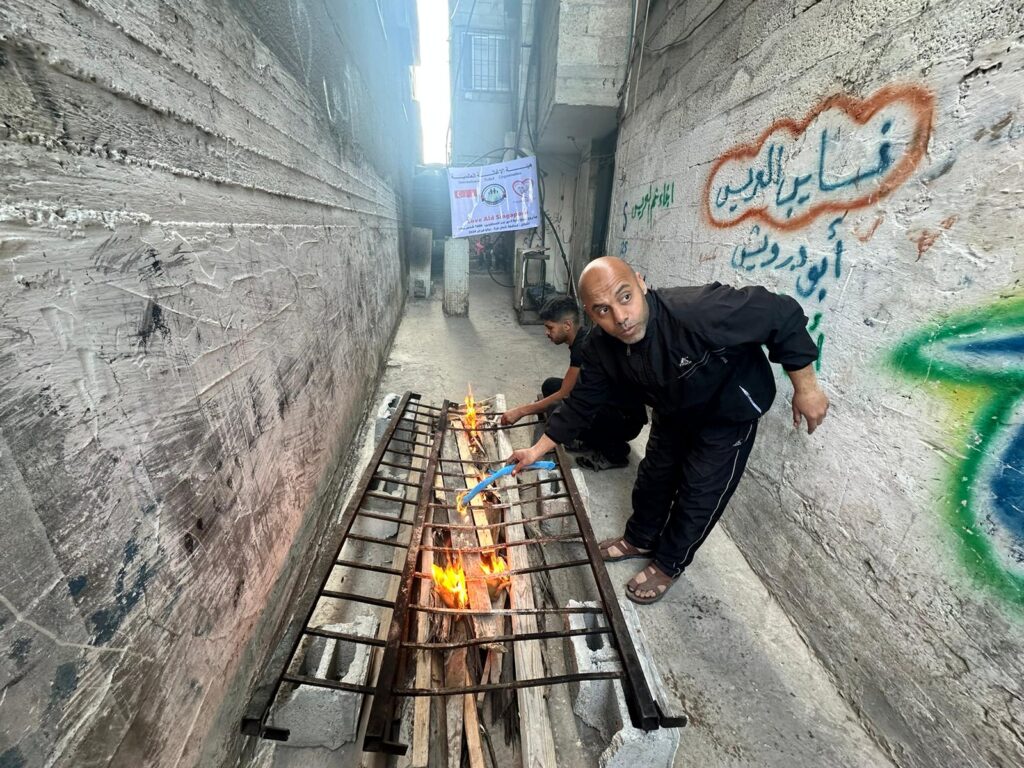
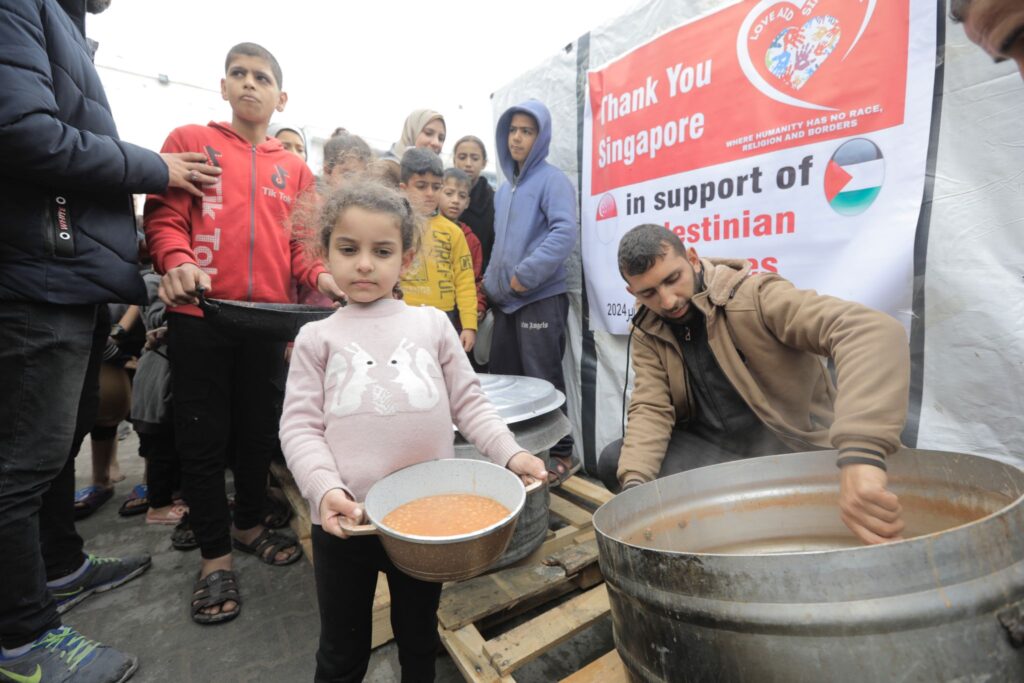
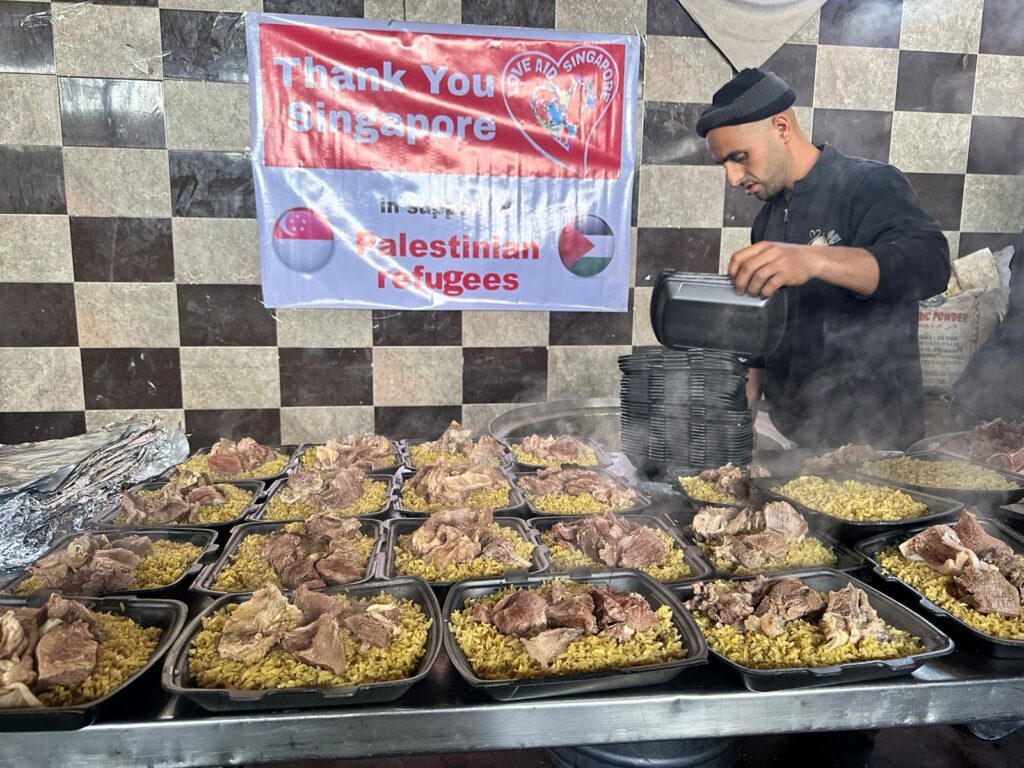
All of those men are somebody’s someone. Do you have the names of those who perished, Gilbert?
Unfortunately, we don’t have the names of the deceased but we provided each of their families US$1000 as compensation.
It can’t bring these men back but at least they have something to fall back on, especially during this tough time.
With 9 cooks gone, and utensils and equipment destroyed, you did manage to re-build the food kitchen in a short period. How did you do that?
I guess it boils down to the adaptability and versatility of the NGO on the ground which could replace the utensils quickly and recruit new cooks for the urgent relief work.
We could only return to cook for Jabalia North Gaza 2 weeks after the incident.
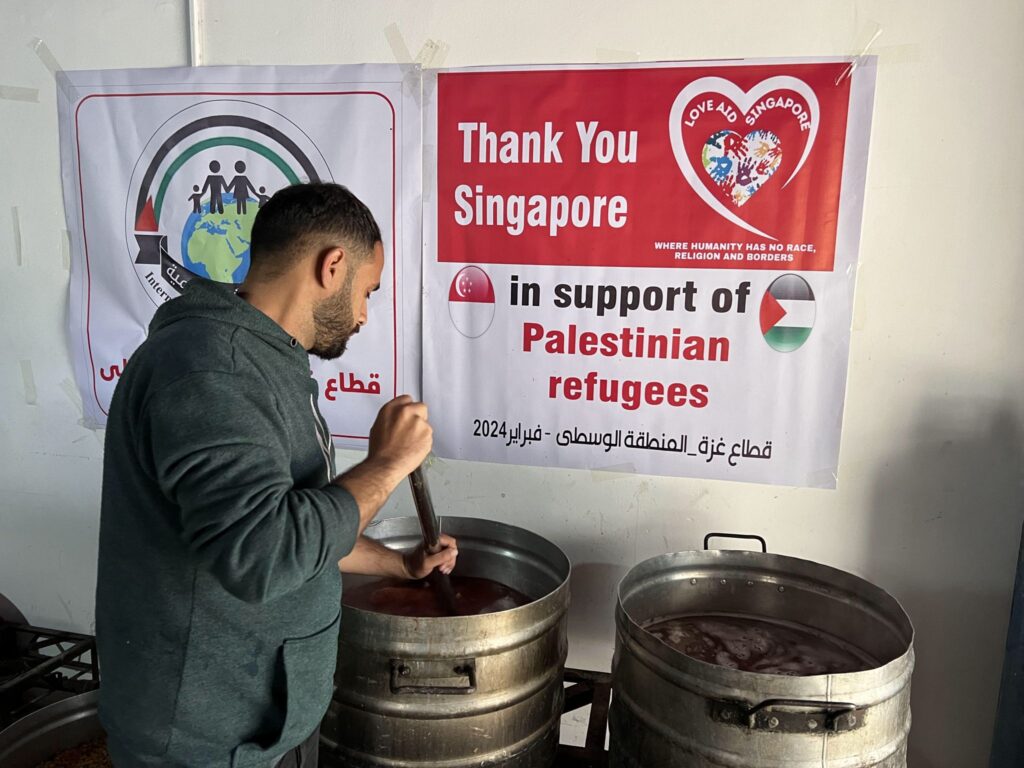
Do you think the attack on the kitchen was a targetted one?
Knowing how two of our food kitchens were attacked in a space of one week, one couldn’t help but speculate that they were the victims of a deliberate attack on our resources.
We later realised that a UNWRA warehouse afterwards was also under bombardment on top of other relief outlets.
One couldn’t put off the notion that most, if not all relief operations inside Gaza are being targeted for attack.
More than 200 relief workers are known to be killed while carrying out humanitarian aid inside the strip so it is a worrying trend that plagues many working inside Gaza now.
Gilbert, losing people you work closely with is not an easy feat, especially for you, where the ones you work with are located in vulnerable places and situations. How do you pick yourself up after this horrendous ordeal?
I guess one never could pick himself up fully after such a painful ordeal but to focus on the task at hand, we have to mask away the emotional pain and move on or else nothing can get done.
Being busy is good as you tend to forget about the pain of the loss but once you hit your head on the pillow to rest at night, the emotions will keep flooding back.
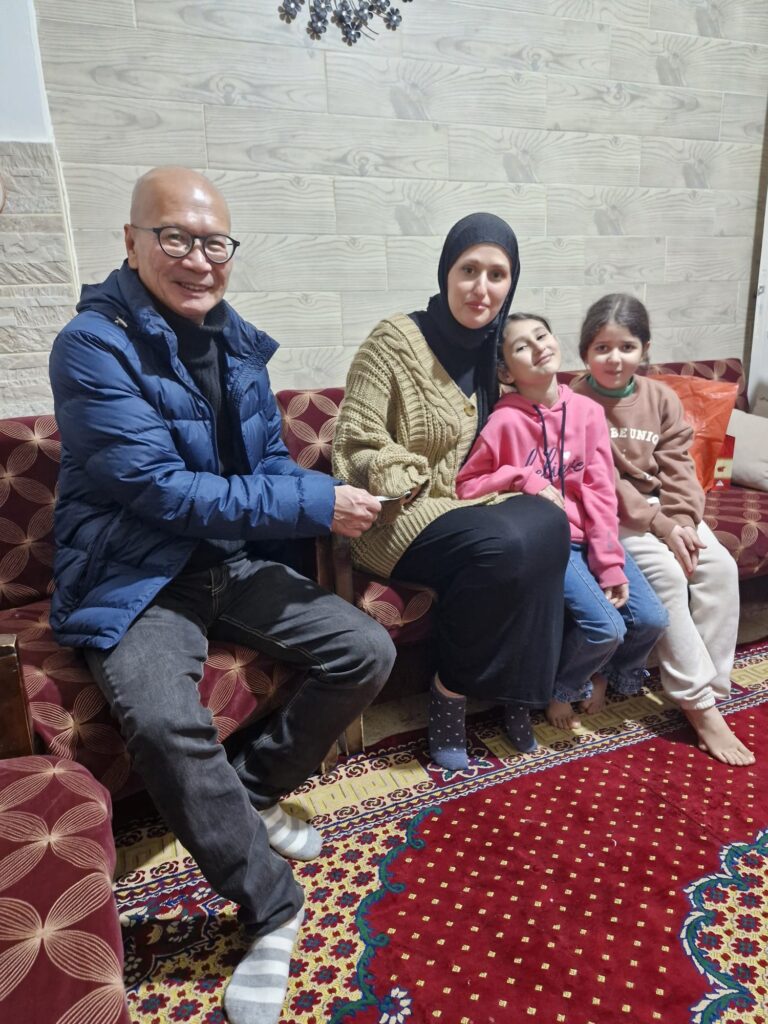
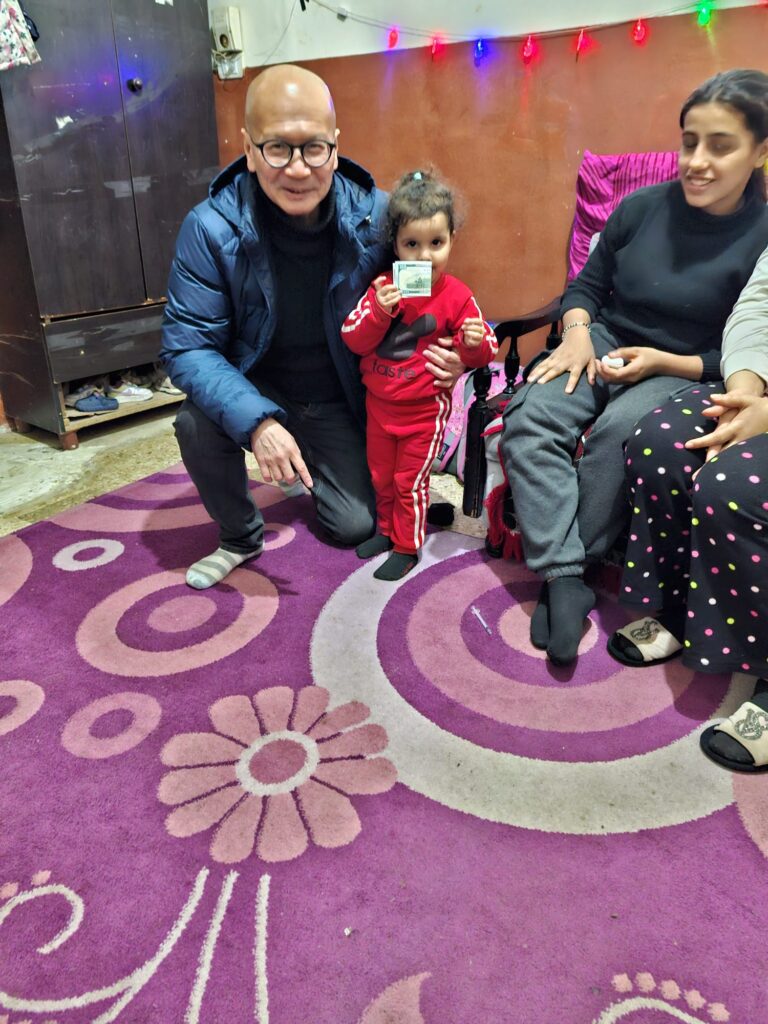
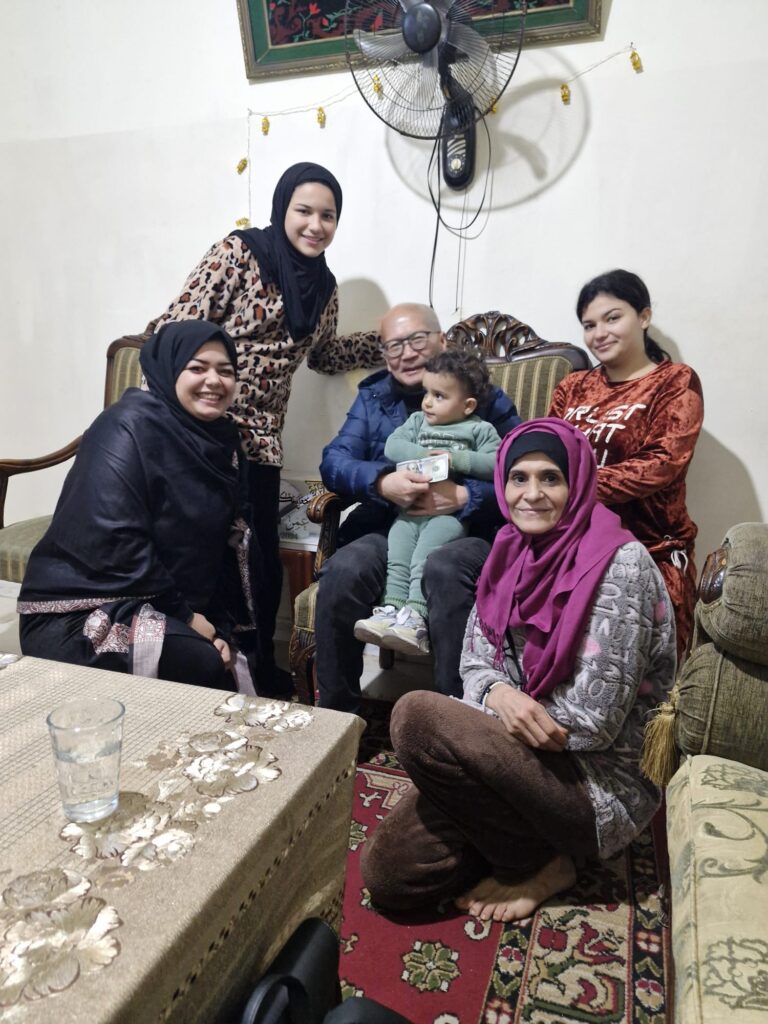
Let’s talk about the solar-powered energy project that you spearheaded with the donations of Singaporeans. How did that project come about?
We did one water well solar energy project at the start of my humanitarian trip in Gaza but the big one came almost a month later when there was a request to power up Kamal Adwan Hospital in North Gaza.
I googled the hospital and discovered it was closing down due to a lack of fuel.
It was also the last hospital operating before it closed.
The cost of the solar work was US$44,000 so I needed some time to think about it. Do take note that I am doing all this alone – there is no one to discuss or talk with before making decisions.
I remembered I was at the warehouse then and began to pace around for about half an hour, trying to deliberate through the options.
It was not difficult to say yes as we have the funds, plus it is for a good cause.
How can saving thousands of lives through reviving a hospital be a bad decision?
They have the panels in store and necessary expertise so I felt safe to say yes without hesitation.
Again, I have no one to talk to before making a decision and that is not easy. You must be firm and have a lot of self-belief that you are doing the right thing.
You can’t waiver and take a long time to think through – there is no such luxury.
The solar-powered water well they had done for us before was also functional and well-done without any hiccups so I felt were in good hands.
The hospital project turned out very well and put our country in a very positive light on the humanitarian map.
I believe so far not many local NGOs throughout the years have gone on the ground hard enough to make any indelible impact so when a tiny one like ours could create all the fanfare by saving a hospital, it is such big news. The Straits Times, Singapore has done an incredible job of covering the historical event.
The only surviving hospital in North Gaza, Kamal Adwan Hospital is revived by these solar panels. How long did it take to put everything together, Gilbert?
It took almost a month to install the framework for the panels to go on top so when the whole thing was completed, the result was almost magical. You could see the lights switched on and the incubators functioning like brand new – my heart turned very warm and tears naturally flowed out.
I remembered shouting to myself “Yes! We did it!”
I was trembling with joy and excitement as we were going through a tough spell then of which I can’t reveal much for now.
Things were going up and down daily like a roller coaster so when there is positive news you want to celebrate it like there is no tomorrow.
.
How is it going now?
I guess, we are still pressing on and no one must think that humanitarian work is smooth and hassle-free. Anything can go wrong – so one must always be prepared and ready to face up to any calamities and upsets along the way.
There is no other way except to press on in spite of whatever situation.
News of your solar panels has spread far and wide. Are you worried this might jeopardise the safety of those taking refuge in the hospital, in case of targeted attack?
Of course, we are worried that the invading force will target the solar panels and destroy them with a drone attack.
It’s like a sitting duck on top of a roof which is very visible from any flying airplane.
We hope they won’t destroy the only hospital now operating in North Gaza. It would be such a colossal tragedy.
Solar-powered energy panel project is an expensive one. Are there plans to install them elsewhere in Palestine, Gilbert?
Yes, we are still looking at installing more solar-powered water-well, so people can have ready access to clean water.
There is also another hospital in the North which was laid empty for many months due to a lack of fuel so we are deliberating whether our solar energy can power up the whole hospital. It is desolate and vacant for many months after the invading forces destroyed it during the initial onset of the war.

